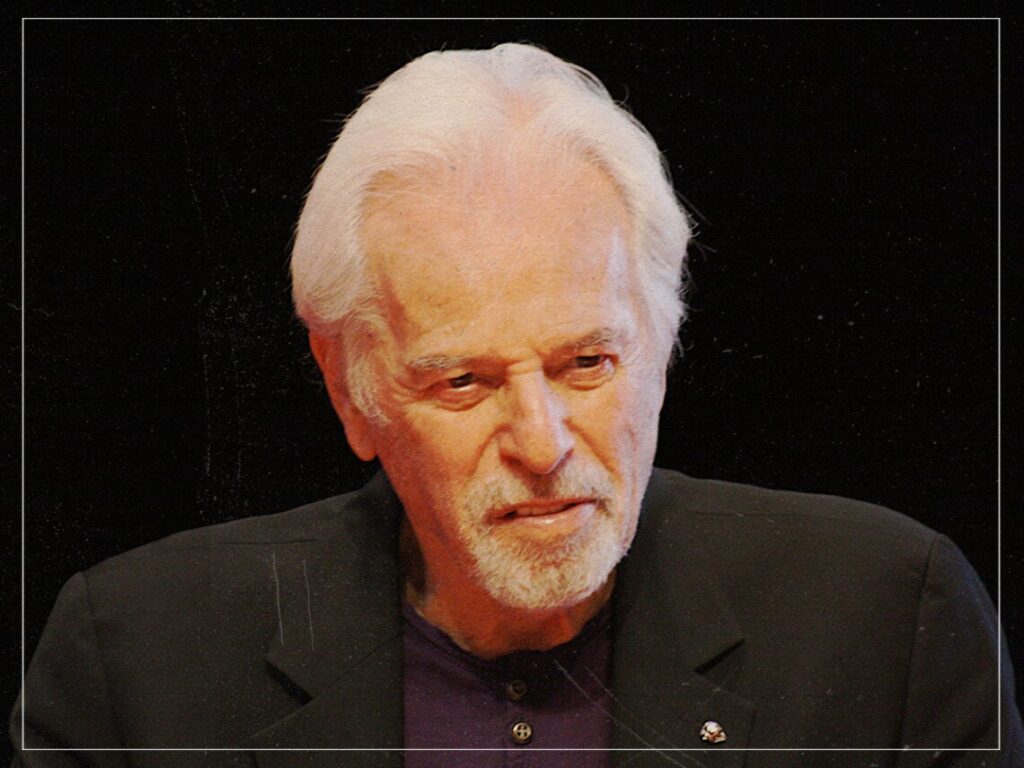Alejandro Jodorowsky’s spiritual perspective on cinema: “A mystical activity”
 Posted On
Posted On
(Credits: Far Out / Lionel Allorge)
Whenever the subject of surreal cinema comes up, the first names that always get mentioned are usually the likes of Luis Buñuel and David Lynch. However, one filmmaker who deserves to be named within that top echelon but often finds himself placed out of it is Alejandro Jodorowsky whose works redefined the genre in uncountable ways.
Championed by the likes of John Lennon, who personally financed Jodorowsky’s masterpiece The Holy Mountain, the Chilean auteur mastered the craft of image-making like nobody else. Incorporating religious symbolism and esotericism to conduct a reconfiguration of the traditional cinematic experience, Jodorwosky’s filmography might be a bit limited in volume compared to some of the other surreal masters but his experiments deserve equal consideration.
Even though he continued working on projects well into the 2010s with interesting films like Endless Poetry, it’s his early works that form the definitive part of his legacy. In fact, due to the nature of his vision and his cult status, many inevitably ended up thinking of the El Topo filmmaker’s failed attempts to adapt Dune when Denis Villeneuve first took over the responsibility.
A key epistemological tunnel into the core of Jodorowsky’s artistic thesis is the recurring elements of religious mysticism and his own views on spiritualism. In a piece for Filmmaker Magazine, the acclaimed auteur elaborated on his central beliefs about the cinematic medium and how it should be primarily viewed from a spiritual lens.
Insisting that there are limits imposed by society and culture, Jodorowsky argued: “The spiritual work is to open up the limits more and more, to understand more and more, to feel more and more, to desire more and more, to do more and more… Nowadays, cinema is an industry, and one has to really wonder what is left for the director. The director is really the heart of filmmaking. He is the poet, the artist, creating his work. When I was shooting this work, I must say that it is something beyond me. I did not create it. I received it because I think that is what happens.”
He added: “What is received is actually sacred, and that is why I made this film and that is also why the actors go much further than any other actors would, because they try to discover themselves as well… Filmmaking is not a religion. It can be a mystical activity, a sacred activity… How it’s sacred for me? Well, for me, sacred means to live ‘you’ completely, to be what you are. If you are what you are, it’s sacred.”
Very similar to the beliefs held by the Romantic poets who considered them to be vessels through which great works of art flowed out into the universe, Jodorowsky’s view of cinema sets his work apart from his contemporaries. Even though other popular surrealists like Lynch have also spoken about harbouring a similar spiritual perspective, very few parallels can be drawn between Jodorwsky’s singular vision and the movies that also fall within that same domain of artistic activity.
[embedded content]
Related Topics


